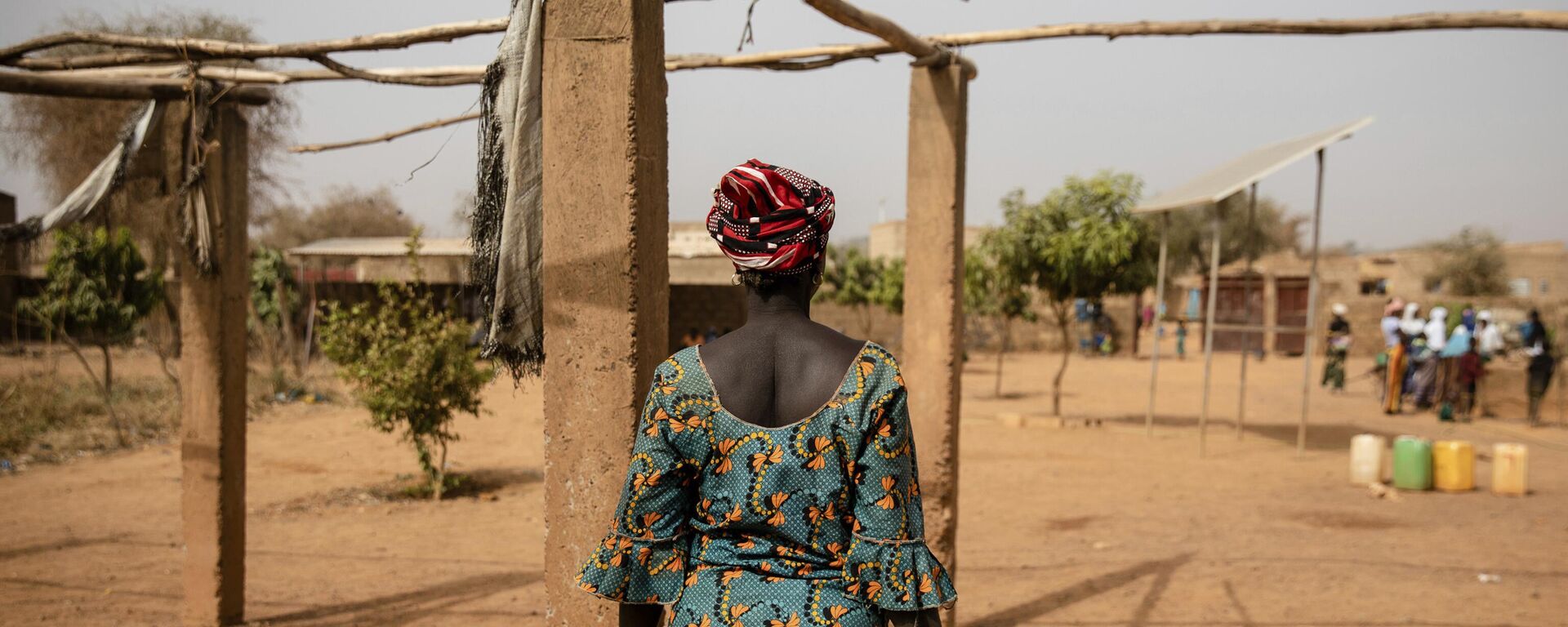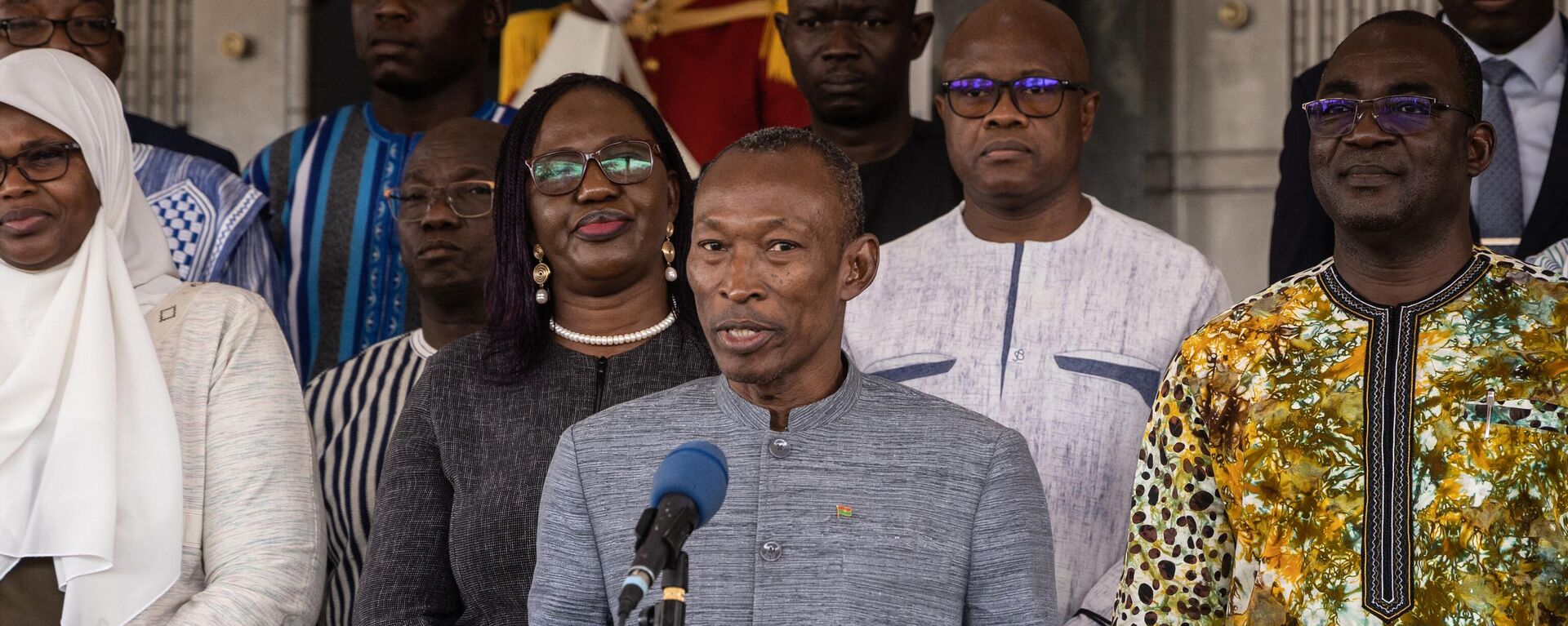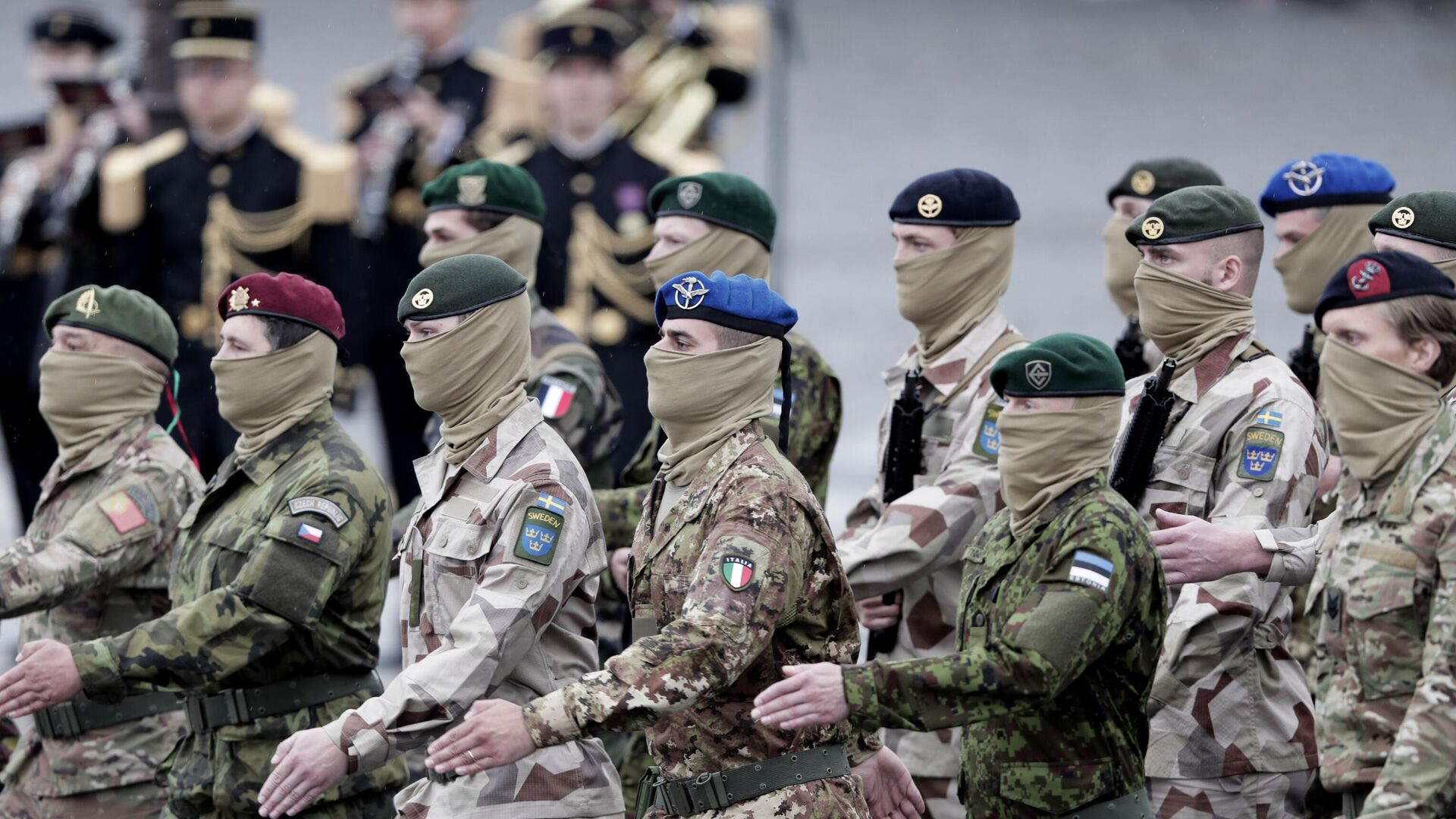https://sputnikglobe.com/20230215/hungary-ready-to-participate-in-french-military-missions-in-africa-foreign-minister-says-1107455707.html
Hungary Ready to Participate in French Military Missions in Africa, Foreign Minister Says
Hungary Ready to Participate in French Military Missions in Africa, Foreign Minister Says
Sputnik International
Hungary is ready to take part in French military missions in Africa, said Minister of Foreign Affairs and Foreign Economic Relations of Hungary Peter Szijjarto.
2023-02-15T11:09+0000
2023-02-15T11:09+0000
2023-04-12T17:05+0000
africa
europe
hungary
mali
burkina faso
niger
sahel region
conflict
european union (eu)
https://cdn1.img.sputnikglobe.com/img/07e7/02/0f/1107454899_0:0:3055:1719_1920x0_80_0_0_592a7f74a829f32b0127241b399b1c7c.jpg
Hungary is ready to take part in French military missions in Africa, Minister of Foreign Affairs and Foreign Economic Relations of Hungary Peter Szijjarto said.Szijjarto also said that France and Hungary are closely cooperating in the space industry and developing their economic relations, with French companies "generally thriving" in Hungary and "contributing to Hungarian economic growth."The EU ended the mission of its Takuba Task Force (aimed at supporting Malian forces in their fight against terrorists) in June 2022 during the withdrawal of troops that were part of French Operation Barkhane.The latter, an anti-terrorist operation in the Sahel region, was launched in 2014 and terminated in November 2022 against the backdrop of worsening relations between France and Colonel Assimi Goita's transitional government in Mali, which came to power in May 2021 and which the following year accused the European state of supplying information, arms, and ammunition to terrorists. The French Foreign Ministry called the allegations made by the Malian side "manipulation of information."The terrorist threat still persists in Sahel following the end of Operation Barkhane. On the day of the formal termination of the mission, French Defense Minister Sebastien Lecornu said that his country's army was incapable of participating in "large-scale operations," and was thus not very effective.In the summer of 2021, French President Emmanuel Macron announced that Paris would change the model of its military presence in the Sahel: Operation Barkhane would be replaced by an international coalition that would include the countries of the region and other partners.The policies of the military government in another conflict-troubled Sahelian country, Burkina Faso, are also characterized by a colder attitude towards France. The government came to power in September 2022 and has since suspended the broadcast of French state-owned RFI Radio and declared the French ambassador a persona non grata.Mali, Burkina Faso, as well as Niger have seen a series of anti-French demonstrations, with protesters waving Russian flags, among other things, and demanding the departure of the "colonial" French military. In response to this, the head of EU diplomacy, Josep Borrell, commented on the rallies, doubting the sincerity of the protesters and claiming that they "did not know where the Donbass is and who President Vladimir Putin is."In response, Russian President Vladimir Putin noted that Africans know where Russia is and what role the country played in the process of liberation from colonialism.Speaking at a press conference in Eswatini during one of his recent African tours, Russian Foreign Minister Sergey Lavrov said the EU's policies are characterized by a neocolonialist attitude and cited one of his talks with top EU diplomats, who described Africa as an "area of special interest of Europe."
https://sputnikglobe.com/20230213/cameroonian-bishop-france-has-affairs-of-former-african-colonies-in-iron-grip-1107366444.html
https://sputnikglobe.com/20230203/burkina-fasos-pm-suggests-forming-federation-with-mali-1106944458.html
africa
hungary
mali
burkina faso
niger
sahel region
Sputnik International
feedback@sputniknews.com
+74956456601
MIA „Rossiya Segodnya“
2023
News
en_EN
Sputnik International
feedback@sputniknews.com
+74956456601
MIA „Rossiya Segodnya“
Sputnik International
feedback@sputniknews.com
+74956456601
MIA „Rossiya Segodnya“
hungary france, hungary africa, france africa, france mali, france burkina, hungary mali, russia africa, russia mali
hungary france, hungary africa, france africa, france mali, france burkina, hungary mali, russia africa, russia mali
Hungary Ready to Participate in French Military Missions in Africa, Foreign Minister Says
11:09 GMT 15.02.2023 (Updated: 17:05 GMT 12.04.2023) Despite last year's withdrawal from Mali, French troops are still present in several Sahelian countries that were under French colonial rule in the 20th century, and which have been troubled by an Islamist insurgency since 2011.
Hungary is ready to take part in French military missions in Africa, Minister of Foreign Affairs and Foreign Economic Relations of Hungary Peter Szijjarto said.
"The defense of Europe, action against terrorism, prevention of migration must begin in Africa. And we are ready, together with the French, supporting them, to take a military part in a common mission with the French, like the one we previously carried out in Mali. If it is necessary that Hungarians on the spot ensure their contribution to the stability and security of Europe and Hungary... we are ready to discuss this issue," Szijjarto said after talks with his French counterpart Catherine Colonna.
Szijjarto also said that France and Hungary are closely cooperating in the space industry and developing their economic relations, with French companies "generally thriving" in Hungary and "contributing to Hungarian economic growth."

13 February 2023, 12:44 GMT
The EU ended the mission of its Takuba Task Force (aimed at supporting Malian forces in their fight against terrorists) in June 2022 during the withdrawal of troops that were part of French Operation
Barkhane.
The latter, an anti-terrorist operation in the Sahel region, was launched in 2014 and terminated in November 2022 against the backdrop of worsening relations between France and Colonel Assimi Goita's transitional government in Mali, which came to power in May 2021 and which the following year
accused the European state of supplying information, arms, and ammunition to terrorists. The French Foreign Ministry
called the allegations made by the Malian side
"manipulation of information."
The terrorist threat still persists in Sahel following the end of Operation Barkhane. On the day of the formal termination of the mission, French Defense Minister Sebastien Lecornu
said that his country's army was incapable of participating in "large-scale operations," and was thus not very effective.
In the summer of 2021, French President Emmanuel Macron announced that Paris would change the model of its military presence in the Sahel: Operation Barkhane would be replaced by an international coalition that would include the countries of the region and other partners.
The policies of the military government in another conflict-troubled Sahelian country, Burkina Faso, are also characterized by a colder attitude towards France. The government came to power in September 2022 and has since suspended the broadcast of French state-owned RFI Radio and
declared the French ambassador a persona non grata.

3 February 2023, 10:30 GMT
Mali, Burkina Faso, as well as Niger have seen a series of anti-French
demonstrations, with protesters waving Russian flags, among other things, and demanding the departure of the "colonial" French military. In response to this, the head of EU diplomacy, Josep Borrell,
commented on the rallies, doubting the sincerity of the protesters and claiming that they "did not know where the Donbass is and who President Vladimir Putin is."
In response, Russian President Vladimir Putin
noted that Africans know where Russia is and what role the country played in the process of liberation from colonialism.
Speaking at a press conference in Eswatini during one of his recent African
tours, Russian Foreign Minister Sergey Lavrov said the EU's policies are characterized by a neocolonialist attitude and
cited one of his talks with top EU diplomats, who described Africa as an "area of special interest of Europe."




